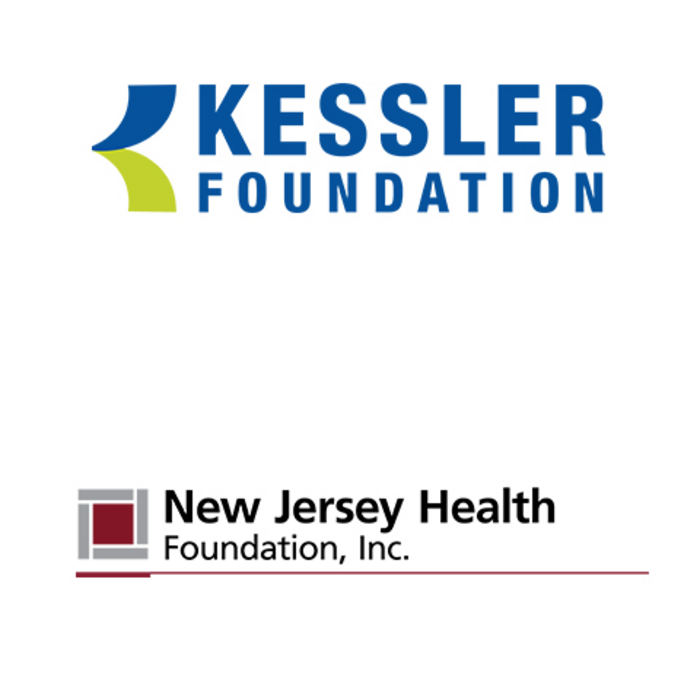East Hanover, NJ. July 20, 2022. Each year, New Jersey Health Foundation (NJHF) accepts applications for grants for research projects that demonstrate exciting potential to help scientists leverage their preliminary findings to qualify for additional funding to advance their research. This year, grants were awarded to three researchers at Kessler Foundation.

Credit: New Jersey Health Foundation/Kessler Foundation
East Hanover, NJ. July 20, 2022. Each year, New Jersey Health Foundation (NJHF) accepts applications for grants for research projects that demonstrate exciting potential to help scientists leverage their preliminary findings to qualify for additional funding to advance their research. This year, grants were awarded to three researchers at Kessler Foundation.
Peii (Peggy) Chen, PhD, senior research scientist in the Center for Stroke Rehabilitation Research, received a one-year, $35,000 award for her project to improve safety during navigation using mixed-reality technology. Dr. Chen is developing an assistive program (the SafeNav App operated by the Microsoft HoloLens device) to address the high risk of falls among the elderly and stroke survivors. The study’s objective is to determine the preliminary efficacy of the SafeNav App on walking safety among the healthy, elderly population and stroke survivors with and without spatial neglect.
“With decreased motor and cognitive abilities, the elderly are at risk for falls when they walk. In addition to old age, stroke is also a risk factor for falls,” says Dr. Chen. “Furthermore, right brain damage is associated with a higher fall risk than left brain damage, which may be related to the greater prevalence of spatial neglect after right brain stroke (38%) than after left brain stroke (18%),” she concludes.
Peter Barrance, PhD, senior research scientist in the Center for Mobility and Rehabilitation Engineering Research, received a one-year, $35,000 award for his project to evaluate a robotic knee exoskeleton for people with knee osteoarthritis (OA). Robotic exoskeletons, worn over or under clothing, are emerging as effective assistive devices to improve mobility in persons with neurological disorders such as stroke and spinal cord injury, but have not been widely tested in people with knee OA.
Dr. Barrance hypothesizes that walking with a lightweight, compliant, robotic knee exoskeleton developed in the laboratory of co-principal investigator Dr. Hao Su will unload (transfer pressure from one side of the joint to the other) the knee during walking and reduce pain in persons with knee OA. “Presently, treatment for knee OA includes physical therapy, pain medication, and total knee replacement. Potentially, a knee exoskeleton could reduce pain in people with knee OA by reducing forces borne by the knee,” explains Dr. Barrance.
Dr. Erik Hummer, PhD, postdoctoral fellow in the Center for Mobility and Rehabilitation Engineering Research, received a one-year, $35,000 award for his project to develop and assess a phase-specific, cycling feedback intervention system in pediatric cerebral palsy.
Visual feedback, such as information given on a screen, is often used during activities to enhance the benefits people gain from rehabilitative exercises. While visual feedback during walking has been explored in pediatric cerebral palsy, there is limited information on its use during stationary cycling. Dr. Hummer’s study focuses on a phase-specific cycling visual feedback system that can be used to help individuals with cerebral palsy balance how they pedal and enhance the benefits gained from rehabilitative exercises.
Participants cycle first without feedback, and then cycle with visual feedback to see how hard they push and pull on the pedal as well as how hard they push on both sides. According to Dr. Hummer, “The goal of the feedback system is to help participants push more than they pull while pedaling, which can help the way they walk,” adding, “measurements taken during all cycling show how participants’ muscles and brain activity change due to the visual feedback.”
Funding: New Jersey Health Foundation (grants PC 32-22, PC 9-22, PC 31-22)
About New Jersey Health Foundation
New Jersey Health Foundation (NJHF) is committed to supporting the development of health-related research and start-up companies in New Jersey by providing student STEM grants, research grants, innovation grants and venture funding to create an interest in STEM- related careers and develop ideas from the research project stage to commercialization. NJHF’s grant programs support exciting research projects in the very early stages of development as well as a segment of funding for community health, social service issues and education projects. As a nonprofit organization, the mission of NJHF is to advance innovations in health for the benefit of society. The funding NJHF provides is critical to advance ideas that have great potential to have a positive impact on human health and patients everywhere. For more information, visit njhealthfoundation.org.
About Kessler Foundation
Kessler Foundation, a major nonprofit organization in the field of disability, is a global leader in rehabilitation research that seeks to improve cognition, mobility, and long-term outcomes — including employment — for people with neurological disabilities caused by diseases and injuries of the brain and spinal cord. Kessler Foundation leads the nation in funding innovative programs that expand opportunities for employment for people with disabilities. For more information, visit KesslerFoundation.org.
For information or to interview a research scientist, contact:
Deb Hauss, senior staff writer, 973.324.8372, [email protected]
Carolann Murphy, senior medical writer, [email protected]
Stay Connected with Kessler Foundation
Twitter | Facebook | YouTube | Instagram | iTunes & SoundCloud




